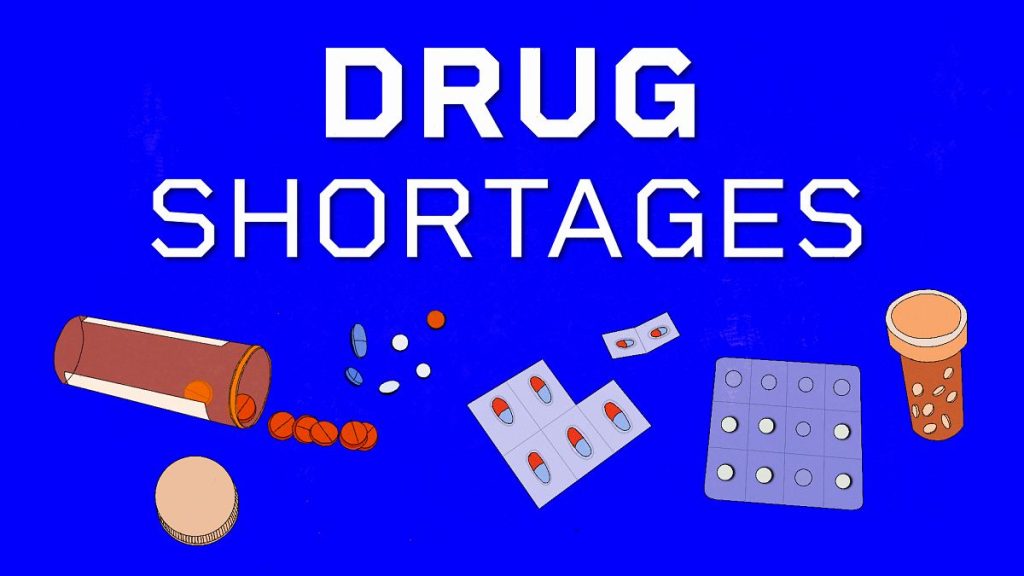The persistent and escalating challenge of drug shortages has become a pressing concern across Europe, prompting significant policy action at the EU level. While drug shortages are not a new phenomenon, recent years have witnessed a dramatic surge in their frequency and severity, disrupting access to critical medications ranging from hormone replacement therapies and cancer treatments to essential drugs for managing diabetes. The COVID-19 pandemic exposed the fragility of pharmaceutical supply chains and highlighted the urgent need for a coordinated European response. This recognition has culminated in the proposed Critical Medicines Act, a legislative initiative aimed at bolstering the resilience of pharmaceutical supplies and ensuring access to vital medications, especially during public health emergencies.
The Critical Medicines Act, initially slated for earlier implementation, is now expected to be formally introduced sometime in 2025. This legislative push stems from the lessons learned during the COVID-19 crisis, where drug shortages became widespread and threatened patient care. The Act aims to address several key areas, including strengthening EU production capacity, optimizing distribution networks, establishing strategic stockpiles, and fostering closer collaboration among national authorities, pharmaceutical companies, civil society organizations, and the scientific community. This multi-pronged approach seeks to enhance the availability of essential medicines both under normal circumstances and during crises, safeguarding public health and ensuring patient well-being.
At the heart of the Critical Medicines Act is the concept of “critical medicines,” those deemed essential for maintaining public health and treating a range of conditions. These include antibiotics, insulin, painkillers, and potentially a much broader list of pharmaceuticals considered vital for patient care. The Act seeks to identify those medicines most vulnerable to shortages and analyze the underlying vulnerabilities in their supply chains. This assessment will inform targeted interventions designed to mitigate risks and ensure a stable supply of these critical medications.
The drivers of drug shortages are multifaceted, encompassing geopolitical events such as the COVID-19 pandemic, the war in Ukraine, and Brexit, as well as sudden spikes in demand due to disease outbreaks or unexpected disruptions in supply caused by product recalls or quality control issues. Regardless of the cause, drug shortages create significant challenges for patients, causing distress, delaying treatment, and potentially jeopardizing health outcomes. The Critical Medicines Act aims to address these vulnerabilities by promoting diversification of manufacturing sources, strengthening supply chain resilience, and establishing mechanisms for coordinated action among EU member states.
Belgian Public Health Minister Frank Vandenbroucke has been a leading advocate for the Critical Medicines Act, emphasizing the urgent need for a coordinated European response to drug shortages. He cites the COVID-19 experience as a stark reminder of the disruptive potential of supply chain vulnerabilities, noting that it led to some of the worst shortages ever witnessed. Vandenbroucke stresses the importance of identifying critical medicines, analyzing their vulnerabilities, and implementing strategies to mitigate risks, emphasizing the need for collaboration and coordination among EU member states.
A crucial aspect of the Critical Medicines Act is the focus on reducing reliance on external suppliers. Currently, European pharmaceutical production heavily depends on countries like China and India, with an estimated 70-80% of pharmaceuticals sourced from these regions. This dependency creates vulnerabilities, particularly during geopolitical instability or supply chain disruptions. The Act aims to encourage diversification of manufacturing sources within Europe and through strategic partnerships with other countries, bolstering resilience and reducing dependence on a limited number of suppliers. This diversification strategy seeks to establish a more secure and reliable pharmaceutical ecosystem for Europe, ensuring consistent access to essential medications for patients across the continent. The Critical Medicines Act represents a significant step towards achieving these goals, aiming to create a robust and resilient pharmaceutical landscape that prioritizes patient needs and safeguards public health.














